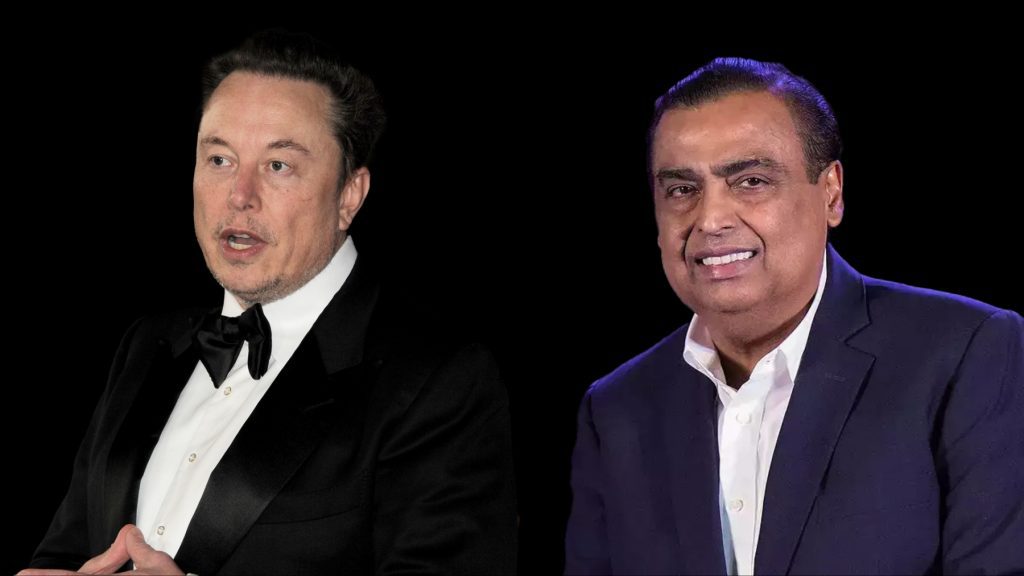
The Indian government recently announced it would be handing out internet through satellite in India administratively, instead of auctioning the spectrum, an announcement which Musk had disagreed before, though Ambani supported the auction model.
The mushrooming rivalry between billionaire tech leaders Elon Musk and Mukesh Ambani marks the dawn of a new race for control over the digital future, as both prepare to dive into the growing India satellite internet broadband market.
The Indian telecom regulator is yet to finalize the spectrum pricing, and the commercial satellite internet services are not operational. But the credit rating agency, ICRA, estimates that subscribers of the satellite internet in India could reach two million by 2025.
Satellite broadband is a type of internet service available over large geographical areas, making it the ideal solution for isolated areas where services such as DSL and cable are not available.
Elon Musk satellite internet India is also thought of as one of the major contributors to bridging the gap in the digital divide in India, where nearly 40% of the population lacks internet access out of the total 1.4 billion residents.
Satellite Internet Providers in India
The fiercely competitive Indian telecom market is currently dominated by Mukesh Ambani’s Reliance Jio, which has aggressively secured airwave through auction after auction in a bid to fortify its dominance in India’s telecom sector.
Reliance Jio signed up with SES Astra of Luxembourg, one of the world’s most prominent satellite operators.
In parallel, Musk’s Starlink uses LEO satellites stationed 160-1,000 km above the Earth, offering faster internet service compared with SES’s MEO satellites.
With more than 6,400 satellites now in orbit and four million subscribers across 100 countries, Starlink had targeted the launch of services in India since 2021, but regulatory delays have held that process back.
The Indian government says this decision to administratively allocate spectrum aligns with prevailing international norms, adding that auctions drive up costs and deter investment in satellite broadband. This administrative system will ensure the spectrum distributes appropriately among qualified operators, therefore potentially allowing Starlink satellite internet access in India.
However, Ambani’s Reliance counters that auctions protect fair competition as it proclaims belief that the lack of explicit legal provisions in India regarding the India satellite internet broadband services necessitates an auction system to establish a level playing field.
Gareth Owen, a technology analyst at Counterpoint Research, says, “Administrative allocation is not very normal for satellite spectrum, which is usually auctioned.”
While Ambani and his partner control about 80% of the country’s telecom market, the entry of Starlink might grease the wheel for Prime Minister Narendra Modi to attract foreign investment and position the government as pro-business.
Given the fact that mobile data in India is amongst the cheapest in the world, industry experts predict that a telecom price war is all set to erupt soon, with Indian experts claiming that Musk can force competitive pricing with his vast resources and might provide free services to earn market traction in certain Indian areas.
Satellite Based Internet in India Challenges
There is still much that must be defeated concerning India satellite internet, despite the bright outlook.
In a 2023 report, EY-Parthenon estimated Starlink costs were nearly tenfold compared to the leading Indian broadband providers. It observed that such a high price may prevent the operator from competing in the market without subsidization by the government. Then, there is a need for more LEO satellites to achieve broader coverage, increasing the operational costs.
Final Thoughts
The competition for India satellite internet broadband between Elon Musk and Mukesh Ambani will change the way internet connectivity looks.
Various regulatory barriers and competitive pressures have been there to face these two giants, and so, the effect of this rivalry could bring long-lasting effects on the dreams of millions of Indians still without proper access to the Internet.
Meanwhile, traditional telecom companies will be in need to double the effort and emphasize competitive pricing, further coverage, and quality of service to adapt. More investments in the future infrastructure and newer technologies like 5G will help these companies maintain further market share.
Inside Telecom provides you with an extensive list of content covering all aspects of the tech industry. Keep an eye on our Telecom sections to stay informed and up-to-date with our daily articles.